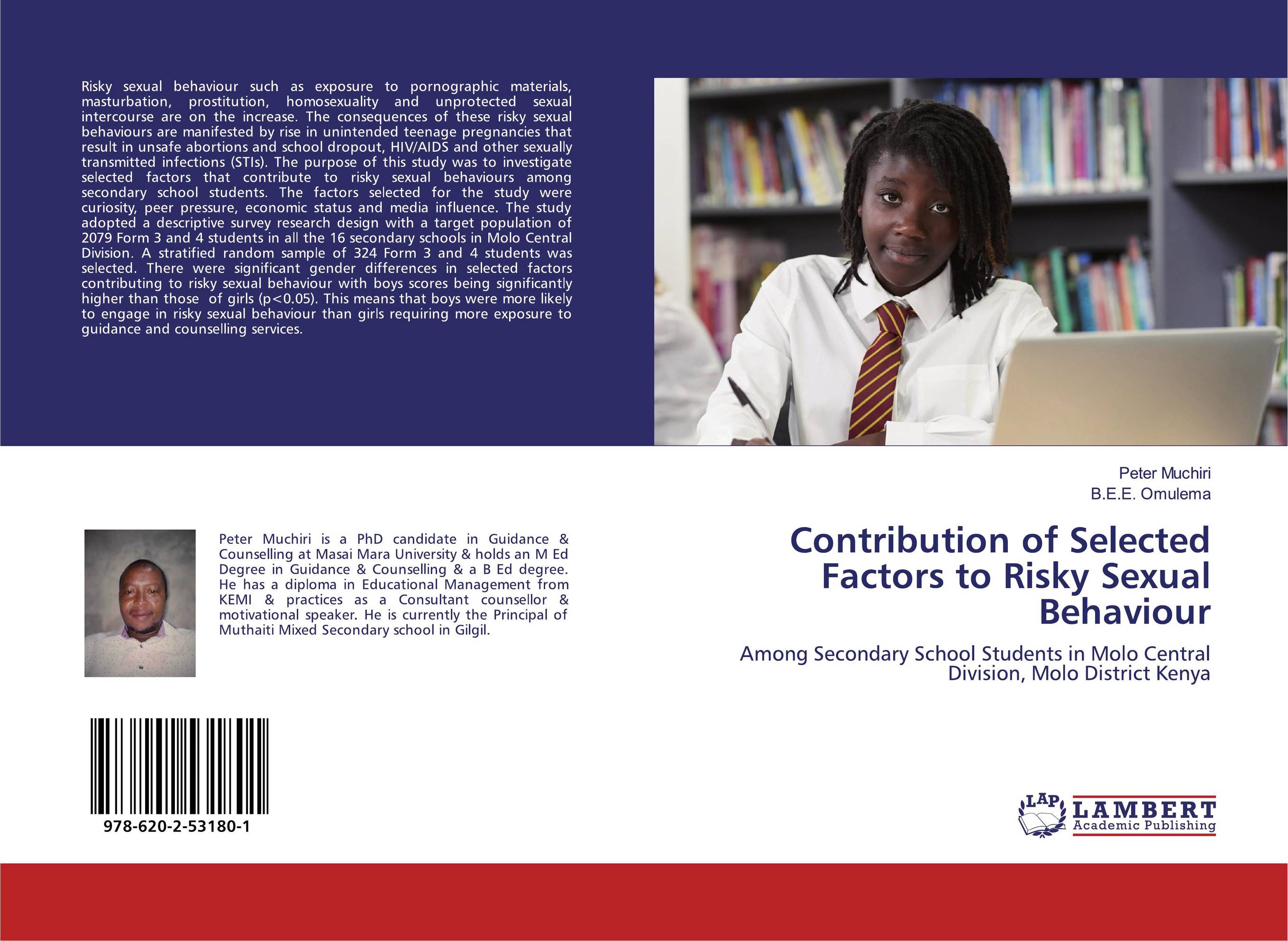| Поиск по каталогу |
|
(строгое соответствие)
|
- Профессиональная
- Научно-популярная
- Художественная
- Публицистика
- Детская
- Искусство
- Хобби, семья, дом
- Спорт
- Путеводители
- Блокноты, тетради, открытки
Contribution of Selected Factors to Risky Sexual Behaviour. Among Secondary School Students in Molo Central Division, Molo District Kenya

В наличии
| Местонахождение: Алматы | Состояние экземпляра: новый |

Бумажная
версия
версия
Автор: Peter Muchiri and B.E.E. Omulema
ISBN: 9786202531801
Год издания: 2020
Формат книги: 60×90/16 (145×215 мм)
Количество страниц: 80
Издательство: LAP LAMBERT Academic Publishing
Цена: 25692 тг
Положить в корзину
| Способы доставки в город Алматы * комплектация (срок до отгрузки) не более 2 рабочих дней |
| Самовывоз из города Алматы (пункты самовывоза партнёра CDEK) |
| Курьерская доставка CDEK из города Москва |
| Доставка Почтой России из города Москва |
Аннотация: Risky sexual behaviour such as exposure to pornographic materials, masturbation, prostitution, homosexuality and unprotected sexual intercourse are on the increase. The consequences of these risky sexual behaviours are manifested by rise in unintended teenage pregnancies that result in unsafe abortions and school dropout, HIV/AIDS and other sexually transmitted infections (STIs). The purpose of this study was to investigate selected factors that contribute to risky sexual behaviours among secondary school students. The factors selected for the study were curiosity, peer pressure, economic status and media influence. The study adopted a descriptive survey research design with a target population of 2079 Form 3 and 4 students in all the 16 secondary schools in Molo Central Division. A stratified random sample of 324 Form 3 and 4 students was selected. There were significant gender differences in selected factors contributing to risky sexual behaviour with boys scores being significantly higher than those of girls (p<0.05). This means that boys were more likely to engage in risky sexual behaviour than girls requiring more exposure to guidance and counselling services.
Ключевые слова: risky sexual behaviour, Students, MOLO, Kenya, Sexual behaviour, secondary school, teenage pregnancies, abortions, School Dropout, Sexually Transmitted Infections, peer pressure, economic status, media influence, sexuality



